During my English class with grade seven, I have received a message from Silvia, saying that Anwar, Dalal’s youngest son, is sick and he needs to be taken to the clinic. Immediately after my class I went to the camp. He looked weak, was crying and had a fever, and during the night had severe respiratory problems. The doctor, who lives in the neighbourhood, saw him, but without professional equipment and medicines, he wasn’t able to help. A specialist was needed.
Access to health care for refugees in Akkar is limited, because only some hospitals and clinics cooperate with NGOs and UNHCR, so that refugees pay only part of the cost of their treatment. One such clinic is in Telabbas, a small village about 7-8 kilometres away from the camp, where Dalal lives. While Silvia was calling Italians from Operazione Colomba to confirm opening hours of the clinic, I was helping Dalal to get the boys ready. We had less than two hours before the clinic closes, so there was no time to get to our Peace Centre in order to take the car. We decided to use the “service” – small buses running on more or less fixed routes. But first, we had to get to the main road. It usually takes us about 10-15 minutes to walk there from the camp, but carrying children, it took us nearly twice as long. Fortunately stopping the bus went smoothly and despite the traffic jams in Halba, we have reached Telabbas very quickly.
The clinic is located on the first floor of a building with no elevator. For a long time now, I have been wondering how people with disabilities are coping in Lebanon, or rather how they are not coping, as being here for nearly half a year, I have never seen anyone in a wheelchair, but that’s a topic for a separate blog entry. We were the only people in the spacious waiting room. Every time when new doctor or nurse appeared in the room, they first turned to Silvia and me, so every time we had to explain that it is Anwar and Dalal who are the patients. It made me feel very uncomfortable, but later Dalal said that thanks to our presence, the doctors and nurses were much nicer and less dismissive towards her. To be honest, the level of care positively surprised me. Firstly, they weighed him, did basic medical test and wrote down his medical history. Then, in the treatment room, he got an injection and another drug in the inhaler. At the same time, Bara, the elder son, began to tear terribly and wanted to get out of the office. I went with him, convinced that it was because of his fear of needles. We went out into the corridor, but he kept on pulling me farther. When we went down the stairs and arrived in front of the building, Bara began to take off his pants, it turned out that he wanted to pee really badly. I quickly said that he can’t do it here, I have lifted him and carried him back to the clinic looking for the toilet, I have made it at the last minute! When we returned, Dalal was in another room, where she was given free drugs and a guidance on how to use them. On the way home we have stopped by the pharmacy, where she got the remaining medicines. For the visit she has paid 5000 Lebanese pounds, a little more than three US dollars. It turned out that Anwar has a serious lung infection, most probably caused by combination of dust and fumes from diesel stove (ie. subia), therefore… daily realities of living in the camp.
Fortunately, when we visited them a few days later, Anwar was feeling much better. On days like this, I understand that our presence in the camp really makes sense.
Paulina

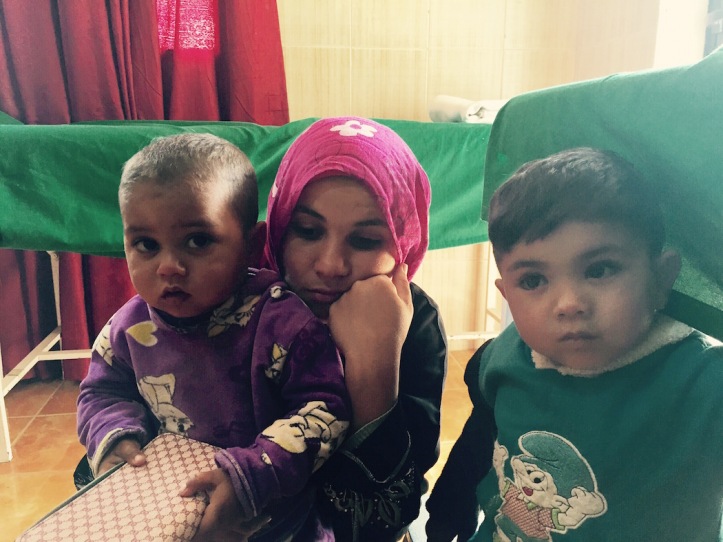
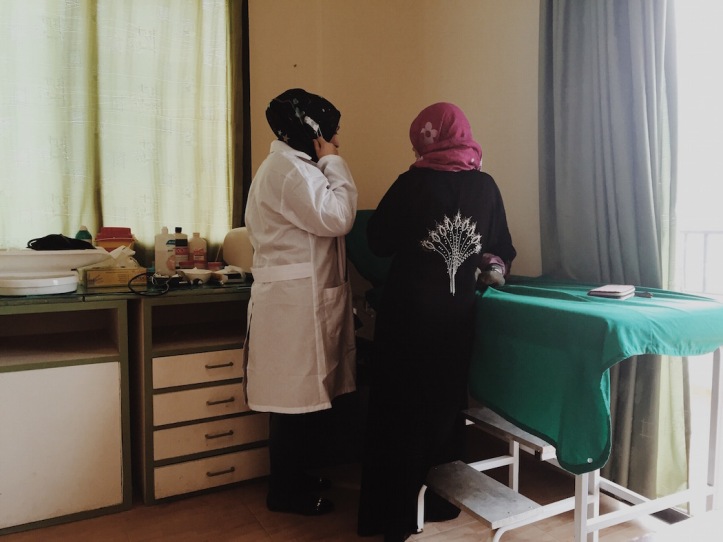
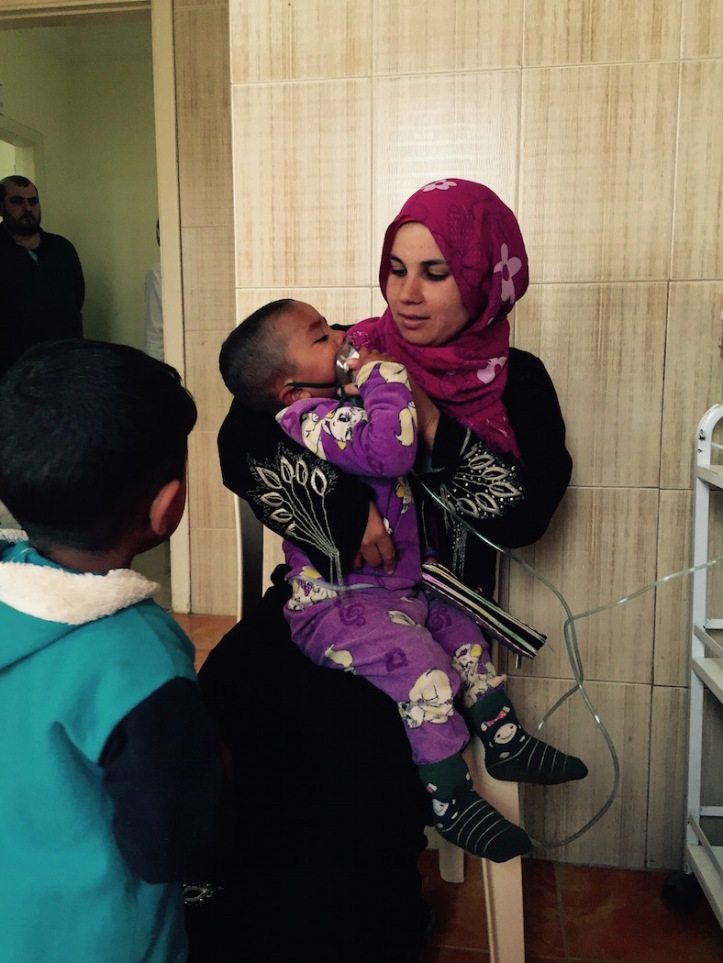
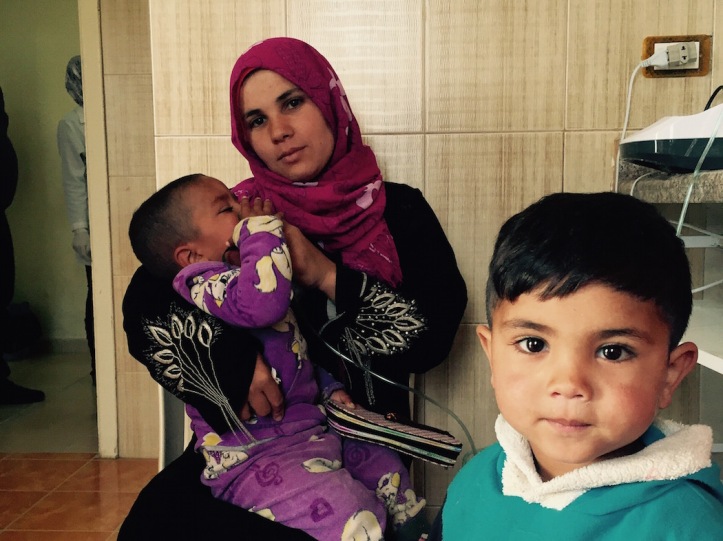
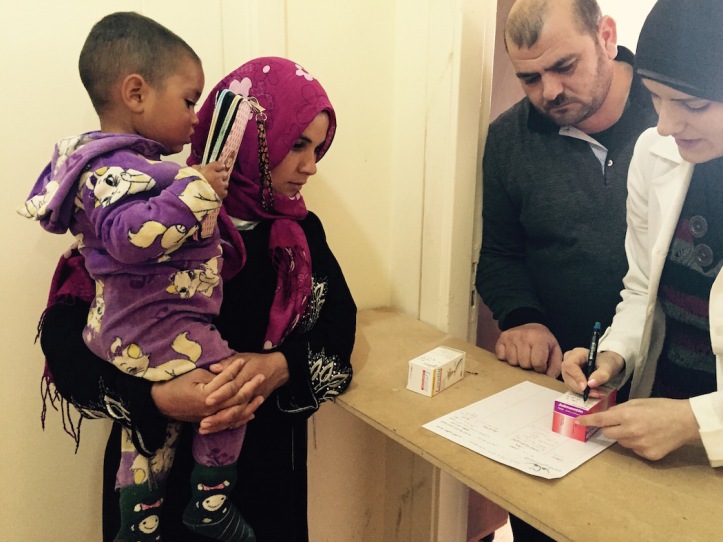
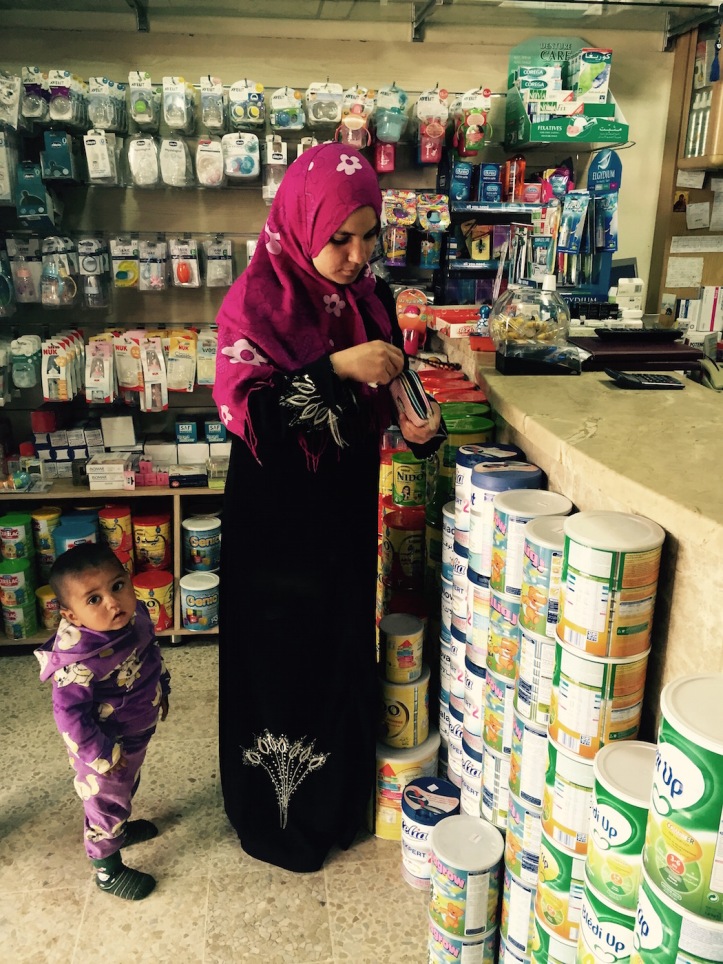
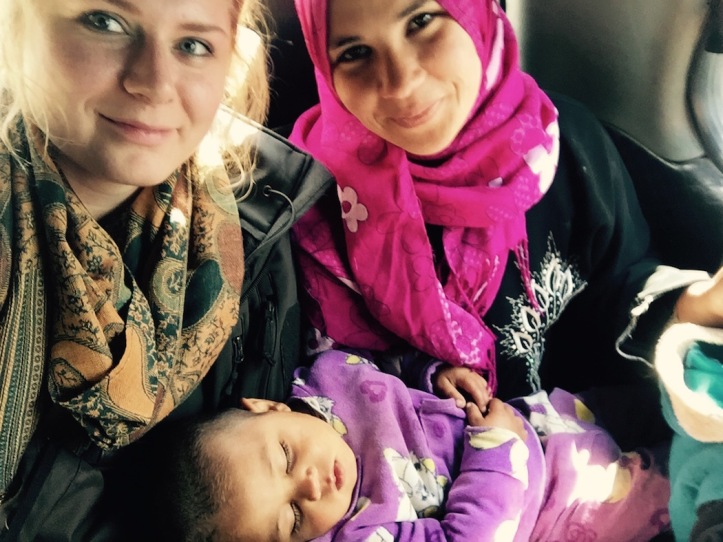
So glad you guys were there to make that happen. Good work!
LikeLike